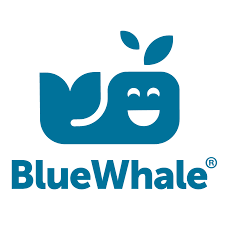The apple market is benefiting from very favorable conditions in Europe. “The quality of the fruits is very good and there are fewer volumes available,” explains Marc Peyres of Blue Whale. “We are really having an exceptional year. In the current context, we are very much aware of how lucky we are.”
High demand
The demand for apples has been high since the beginning of the campaign. “When the fruit are good, consumption is also good,” explains Marc. “In the fall, the demand was even too high to satisfy the market, and as a result, prices increased sharply. The demand has now decreased slightly, but remains high.”
Large Export impacted by Covid-19
The sanitary crisis has had little effect on export to other European countries. However, the crisis has had an impact on exports to destinations outside of Europe, with fewer containers available and significant ship delays. “We cannot have the same fluidity of supply as usual. But since there are fewer products available, it does not affect our sales balance seriously.”
For the Blue Whale producers, the health crisis has led to additional costs compensated, luckily, by good prices. “The volumes are limited but the quality is good, so most of them are sold at high prices on the fresh market. Fewer apples are going to the processing industry this year.”
Brexit
Historically, England is Blue Whale’s first export market, which explains the company’s English name. “The British market probably is the market that has the most Blue Whale boxes. We are very present on the wholesale markets, as well as in supermarkets. Of course, Brexit has led to additional costs at the borders and additional administrative work, but we’ve organized ourselves very well. The most important thing is that there is no import tax. England is still 40km away from France, with or without Brexit. I would even say that in the past 10 weeks, we have been selling a lot more apples than usual in England.”
Marc adds that the biggest administrative complication to come will be the implementation of a phytosanitary certificate for apples by April 1st. “We have been delivering our products in England without a certificate for 40 years and never had a phytosanitary problem. Today, we are required to issue certificates for something that does not exist, which is of little interest. Frustration and annoyance are caused by such a waste of time and energy.”
Marc also points out the lack of electronic procedures to facilitate the exchanges required by Brexit. “For the time being, no dematerialized procedure for the phytosanitary certificate is planned, which would have been judicious. It is actually surprising that this is not a priority in 2021. Drawing up certificates on secure paper rather than electronically is also nonsense nowadays, in terms of respect for the environment! It would therefore be a good idea to postpone the implementation of such certificates until the digital channel is fully operational. After 40 years without anything, we are now just a few months away!”

For more information:
Marc Peyres
Blue Whale
marc@blue-whale.com
www.blue-whale.com
